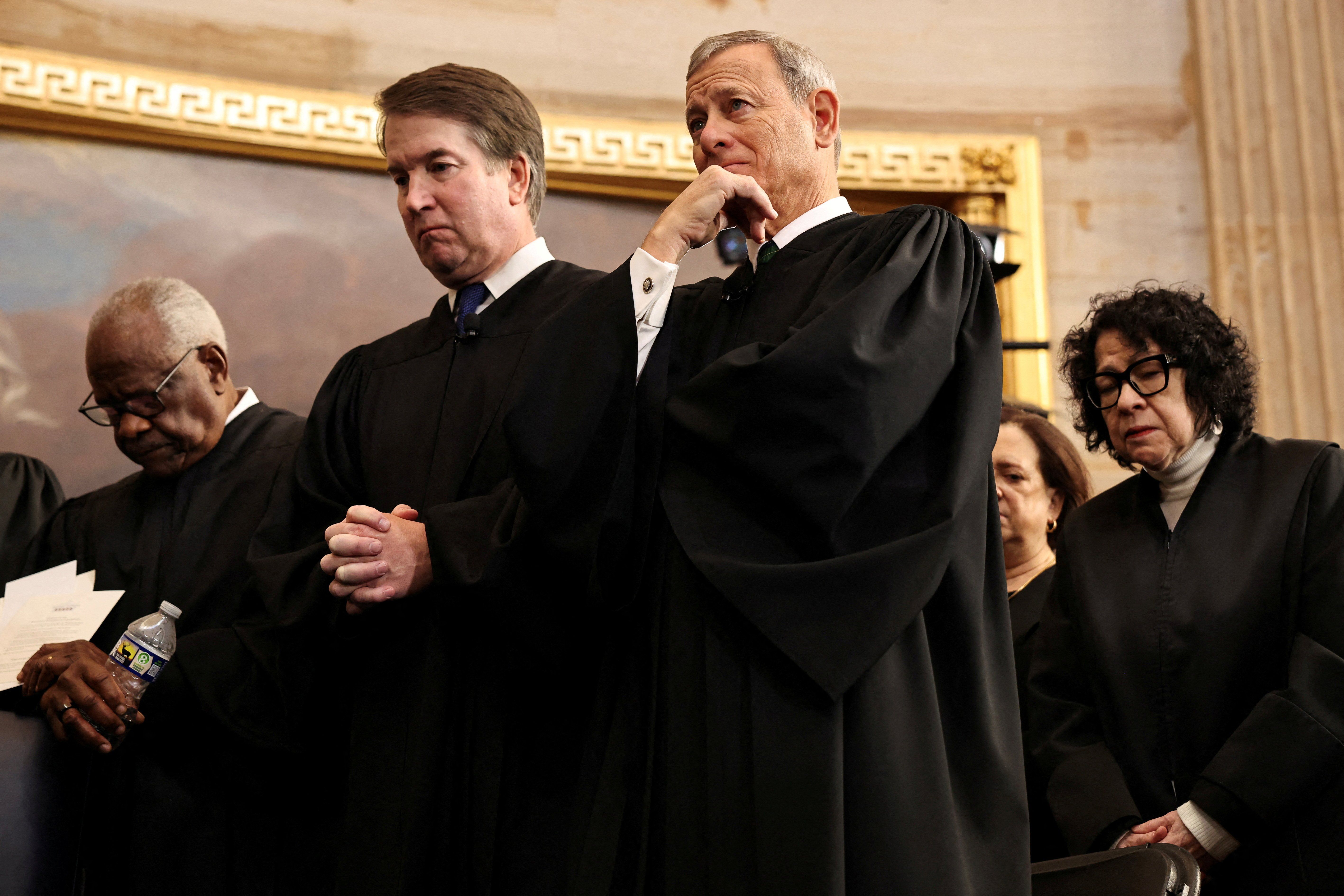In an article for The Nation published Thursday, legal commentator Elie Mystal argued that the Trump administration has peeled back the facade of the conservative justices on the Supreme Court, saying that “they don’t actually care about precedent … They don’t actually care about the text. They don’t actually care about judicial restraint. They want the political outcomes they want and they have the votes to do it.”
Mystal took aim principally at Justice Clarence Thomas, who in recent remarks at Catholic University made clear (in careful legal language) what Mystal claims has long been true: Thomas believes that Supreme Court precedent does not bind him. He questioned the sanctity of stare decisis, the doctrine that courts should follow prior rulings, suggesting that invoking it is too often a “talismanic deal” that excuses lazy reasoning.
Instead, Mystal contended, Thomas is signaling that he feels free to discard past decisions that do not align with his political preferences.
According to Mystal, Thomas is not interested in the traditional, accepted paths for revising precedent — namely, new legislation, case-by-case distinctions, or showing that circumstances have materially changed. Rather, Thomas is proposing that precedents should be judged for whether they are “respectful of our legal tradition, and our country, and our laws” — a nebulous standard that invites subjective judgment.
In practice, Mystal says, Thomas has already applied this approach selectively: he endorsed the overturning of Roe v. Wade while favorably citing Loving v. Virginia, not because of coherent legal distinctions, but because Thomas’s own value judgments align with one outcome and not the other.
Mystal warned that Thomas is not an outlier. He argued that the conservative majority now on the Roberts Court shares this disregard for precedent, and that this term they are poised to overturn a voting‑rights decision that the Court itself adopted only in recent years. The “mask off moment,” Mystal says, is that the Justices no longer even pretend to be bound by the rules they swore to uphold in their confirmation hearings.
The stakes, Mystal wrote, are particularly high for groups historically marginalized under majority white, cis-hetero power structures. If no precedent is safe, then rulings that protect rights — from same-sex marriage to abortion to voting equality — can be jettisoned by the Court at will. But he also sees a silver lining: by making explicit that precedent is no barrier to his agenda, Thomas has handed future liberal justices a kind of roadmap to dismantle the conservative edifice. If liberals ever regain a Court majority, the power of the current regime, Mystal suggested, will fade as courts reject Thomas’ invented rules about which precedents are “respectful.”
"Clarence Thomas will soon be the longest-serving justice in American history. It’s good to know that he thinks his opinions will not matter after he’s dead. On that, he and I agree," he wrote.
